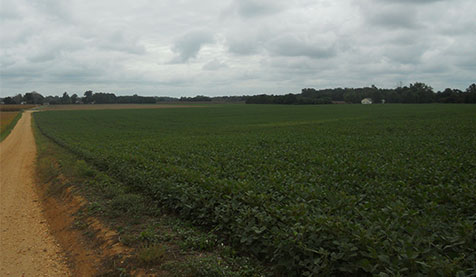Additionally, there were two studies introduced. One advanced.
House Joint Resolution 120, patroned by Del. Steve Landes (R-Augusta), was approved by the Virginia General Assembly. Del. Landes, Vice-Chair of the Appropriations Committee, represents a portion of the Shenandoah Valley where the recycling of biosolids, industrial material and animal manure is used to support a very active and successful agricultural community.
Del. Landes’ study requests the Joint Legislative Audit and Review Commission (JLARC) to do the following:
“… (i) analyze the current scientific literature regarding the long-term effects of biosolids and industrial residuals on health, including potential impacts on well, surface, and ground water; (ii) evaluate the regulatory requirements for land application and storage; (iii) evaluate the differences between biosolids and industrial residuals rated as “Class A” materials and “Class B” materials; (iv) evaluate the feasibility, especially for local governments, and including an economic impact on citizens of the Commonwealth, of requiring municipal utilities currently permitted to generate, as a byproduct of the municipal wastewater treatment process, “Class B” material to upgrade those facilities to generate “Class A” material; (v) evaluate the effectiveness of the local monitoring component of the programs, while also analyzing the potential for private contractors to serve in a monitoring capacity; (vi) evaluate both the potential outcomes and the probable costs from additional testing requirements for these products; (vii) analyze potential alternatives for waste materials that are currently processed and treated to be land applied, and any potential costs that could be associated with such alternatives; (viii) evaluate the contractual relationships among Virginia localities and the impacts of local agreements and decisions that could affect wastewater treatment and land application, including septic tank pump out requirements; and (ix) where applicable, analyze the potential impacts of Virginia’s biosolids and industrial residuals regulations on agricultural interests and future economic development in the Commonwealth.”
Technical assistance is to be provided by the Department of Environmental Quality, the Virginia Department of Agriculture and Consumer Services, the Virginia Department of Health, the United States Geological Survey, and the members of the W3170, a multi-state workgroup composed of representatives of the U.S. Environmental Protection Agency, the U.S. Department of Agriculture, universities, and municipal governments from across the country that is conducting research on understanding the potential hazards and value of constituents in biosolids and other residuals.
This is not the first time JLARC has studied biosolids – in fact it’s not the first time the General Assembly has reviewed and studied biosolids. In 2002 the Bolling Commission held a series of meetings on biosolids, and concluded that state oversight and management of the program is necessary to ensure consistency, but that local governments should be authorized to assist with enforcement and monitoring to ensure compliance with State regulations. In 2005 the General Assembly directed JLARC to study land application. It concluded that opportunities exist for improving the biosolids use program, which at the time was managed by the Virginia Department of Health. These measures include using the proceeds from the underutilized biosolids fee fund to increase the State’s oversight capacity. JLARC also suggested that VDH could provide greater support to counties. And again in 2007, the General Assembly approved legislation establishing an Expert Panel on Biosolids. Co-chairs were the Secretary of Natural Resources and Secretary of Health & Human Resources. Panel included 22 members (Physicians, Public Health officials, wastewater treatment professionals, forestry personnel, representatives from Virginia Tech, University of Virginia and VCU, and citizens). Its report said that after a thorough review the Panel uncovered no evidence or literature verifying a causal link between biosolids and illness. It suggested that health claims against biosolids don’t meet biological plausibility tests, and that biosolids should be considered a “resource”.
A timeline of studies and significant regulatory activity can be found here.
Barry Dunkley, Director, Water and Wastewater Treatment , who served on the Expert Panel and the Technical Advisory Committee during the development of DEQ’s biosolids regulations, and is a board member and past president of the Virginia Biosolids Council, said studies could be advantageous. “There are some citizens who might be challenged by the extensive science done on biosolids, and need, for lack of a better description, a government attribution to confirm what it is they know, or are not sure of, can be good.
“It’s good that science continues to evolve and that this work is always ongoing,” Dunkley said.
“I remind visitors to our facilities in Danville that simply the occurrence of something does not mean that it is perhaps harmful to humans – but that proper scientific design and strong science can provide and identify risks.”
The fact that JLARC is being asked to study biosolids is good – like anyone else, we want to make sure what we are doing is right – so like any citizen we too want that attribution,” he said.
